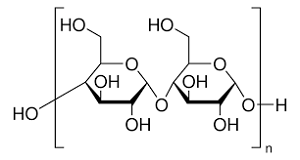HI! I’M ELEMENT AI.
Tapioca Starch

Product Description
Tapioca Starch, derived from the cassava root, has various industrial applications.
Product:
Tapioca Starch
CAS:
9005-25-8
Synonym:
Cassava starch
Structure:

Typical Characteristics
Appearance
White powder
Density
1.5 g/cm3
Melting point
256-258 °C
Molecular Weight
Variable
Purity
99%
Refractive index
1.52
Uses, Applications & Markets
Key applications
get a quote
We Offer Tapioca Starch
in various grades
A few of the grades available are listed below:



Tapioca Starch used in many
industry applications
Tapioca Starch, derived from the cassava root, has various industrial applications. Here are some of its uses:
- Food Industry: Tapioca starch is used as a thickener, stabilizer, and texturizer in food products such as sauces, soups, desserts, and baked goods.
- Textile Industry: It is used in the textile industry for sizing yarns, providing stiffness and strength to fibers during weaving and finishing processes.
- Paper Industry: Tapioca starch is used in the paper industry as a surface sizing agent to improve paper strength, smoothness, and printing properties.
- Adhesives and Binders: It is used in the production of adhesives, glues, and binders for paperboard, plywood, and other wood products.
- Pharmaceuticals: Tapioca starch is used in pharmaceutical formulations as a disintegrant in tablets and capsules to aid in drug dissolution and absorption.
- Cosmetics and Personal Care: It is used in cosmetics and personal care products such as powders, creams, and lotions as an absorbent and bulking agent.
- Textile Sizing: Tapioca starch is used as a sizing agent in textile finishing to improve fabric handle, stiffness, and resistance to abrasion.
- Biodegradable Packaging: It is used in biodegradable packaging materials and films as a renewable and eco-friendly alternative to synthetic polymers.
- Industrial Applications: Tapioca starch is used in various industrial applications such as in the production of biofuels, biodegradable plastics, and fermentation processes.
- Animal Feed: It is used in animal feed formulations as a source of carbohydrates and as a binder in pelleted feeds.